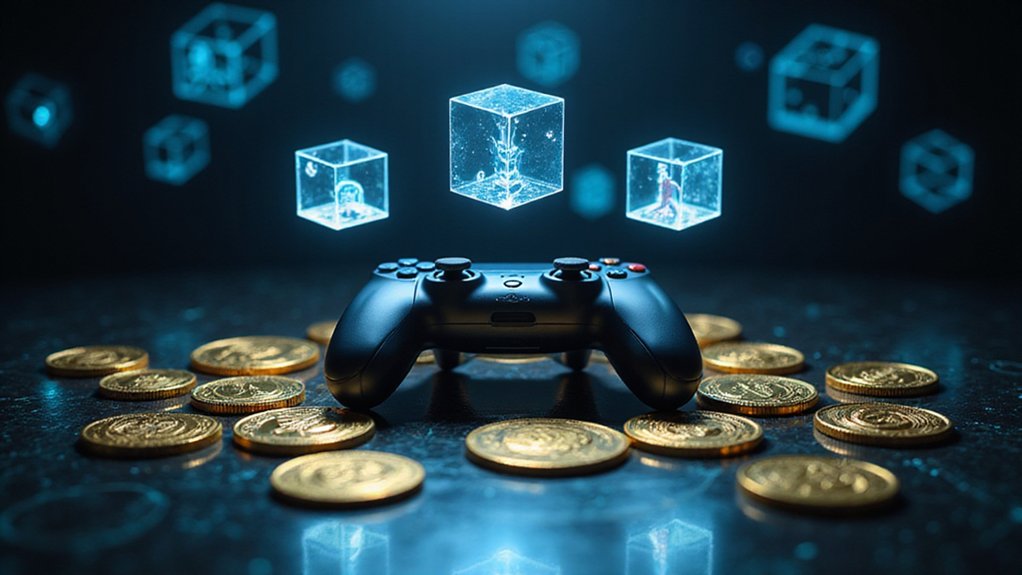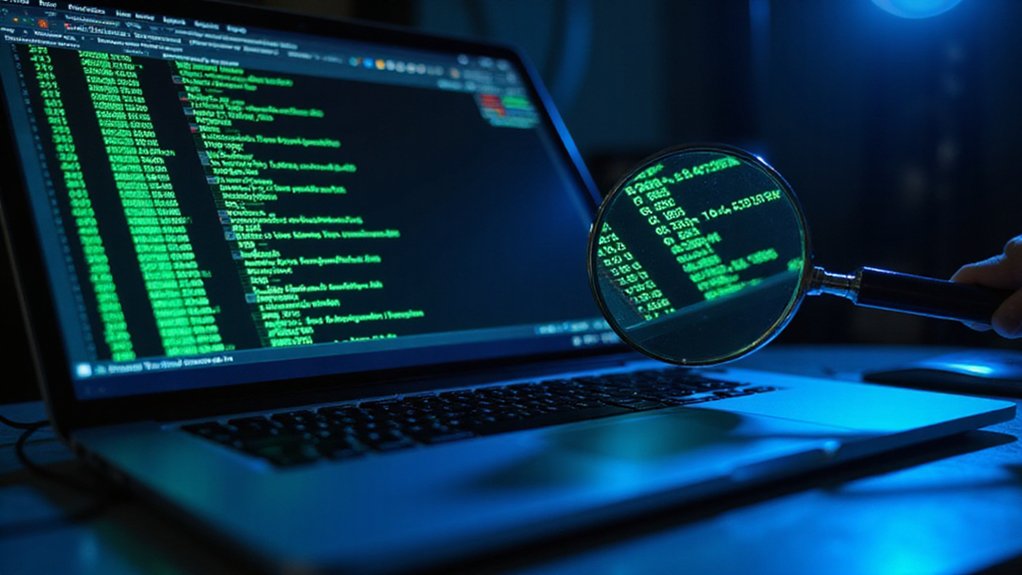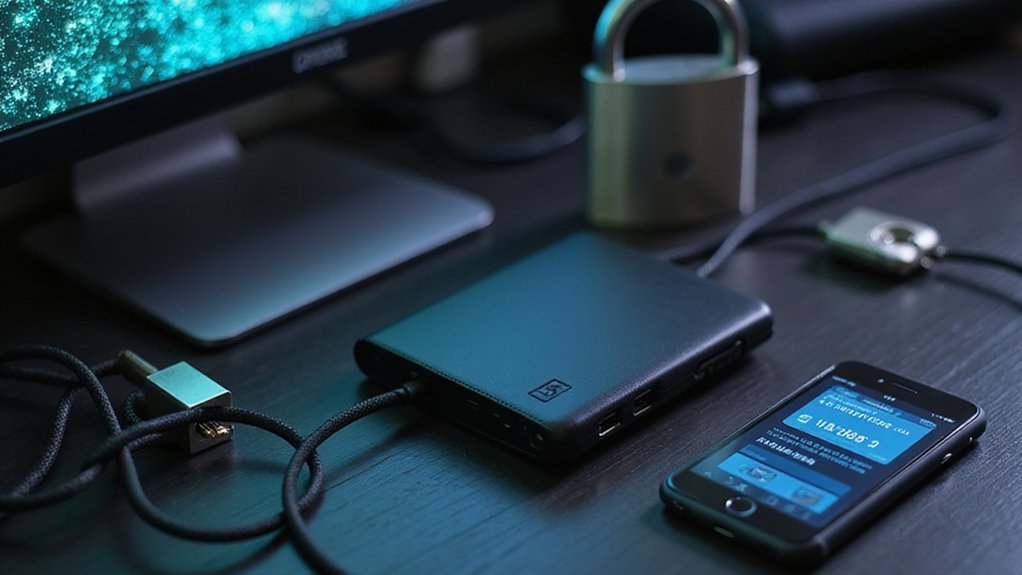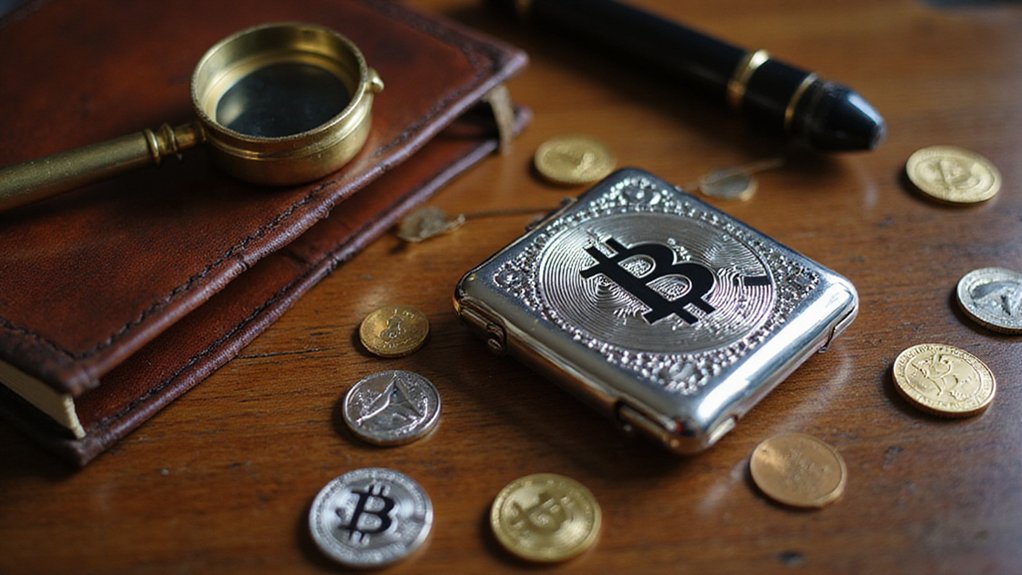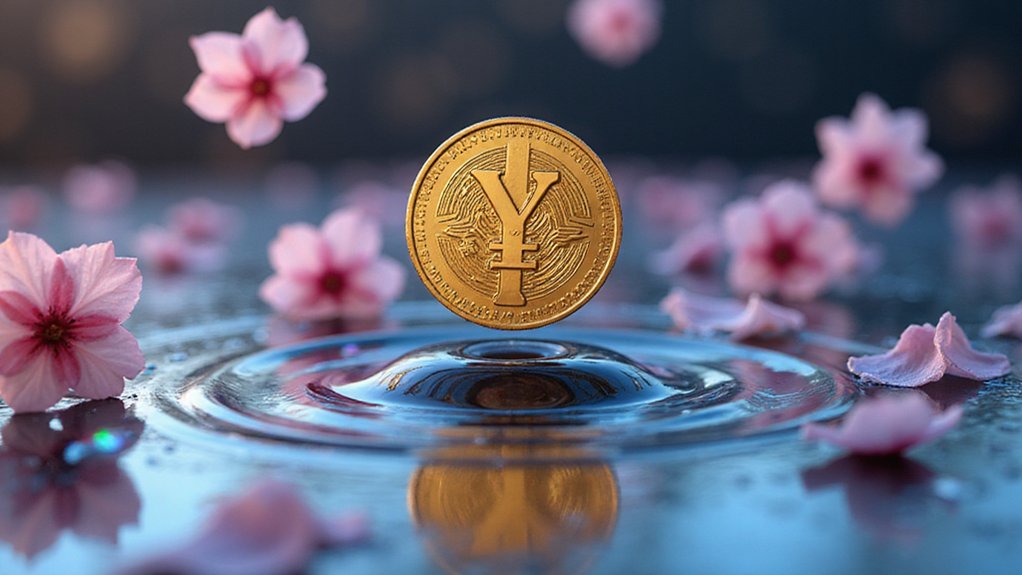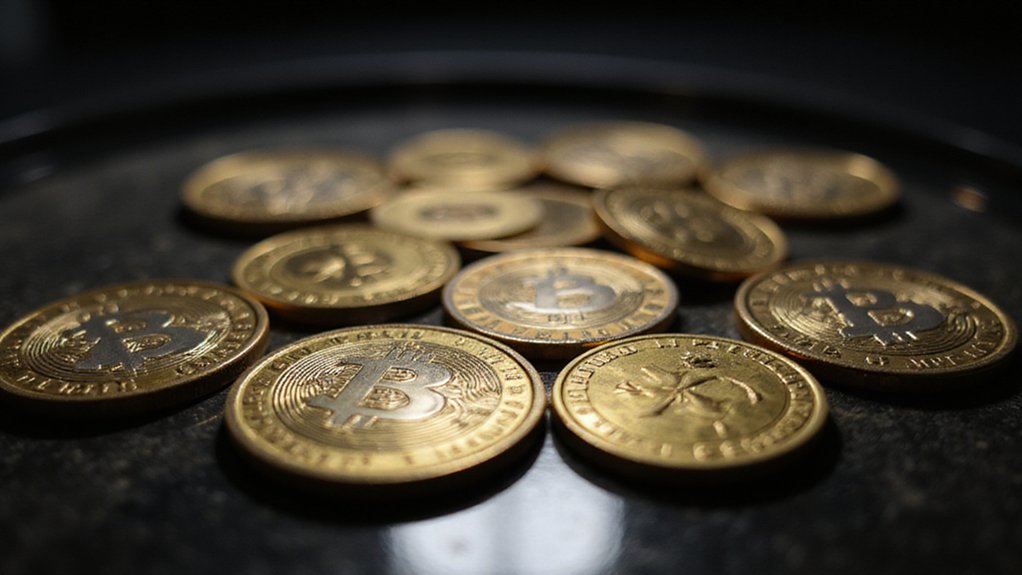In-game tokens are blockchain-based digital assets that function as currencies, collectibles, or utility instruments within gaming ecosystems, verified through immutable ledgers rather than centralized servers. Players acquire these tokens through direct purchases, marketplace trading, or the time-honored tradition of grinding repetitive quests—now with potential monetary rewards. Smart contracts automate transactions and enforce usage rules, creating player-driven economies where rare armor becomes as tradeable as any commodity (regulatory clarity not included). Understanding their mechanics reveals broader implications for digital ownership.
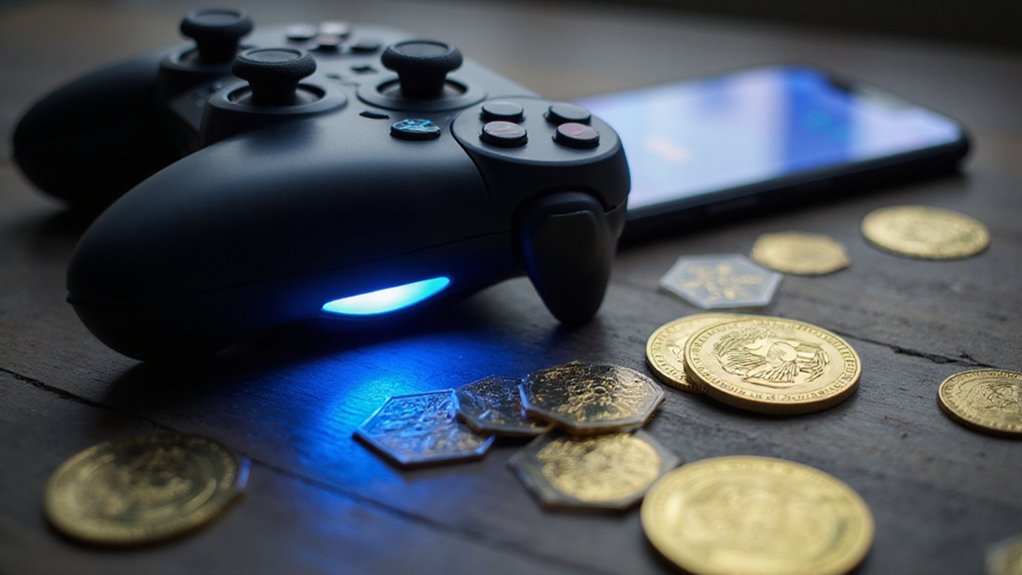
The marriage of gaming and blockchain technology has birthed a peculiar offspring: in-game tokens that promise to revolutionize how players interact with digital worlds while simultaneously confounding regulators who struggle to categorize these hybrid creatures.
These digital assets function as currency, rewards, or representations of unique items within gaming ecosystems, leveraging blockchain’s immutable ledger to guarantee verifiable ownership—because apparently, the authenticity of a virtual sword requires cryptographic proof.
The tokenization process converts in-game assets into blockchain-based certificates, recorded on public ledgers that anyone can verify (assuming they possess the technical wherewithal to decipher blockchain data).
Smart contracts automate transactions and enforce usage rules, eliminating the need for centralized oversight while introducing entirely new categories of technological risk.
Players can acquire these tokens through direct purchases from developers, marketplace transactions, or the time-honored tradition of grinding through repetitive quests—though now with the tantalizing possibility of real-world monetary returns.
Token varieties range from fungible currencies (interchangeable and uniform in value) to non-fungible tokens representing unique items like rare armor or exclusive avatars.
Utility tokens facilitate feature interactions, while governance tokens grant voting rights over game development—democratizing creative control in ways that would make traditional publishers particularly uncomfortable.
Dual-token models separate governance from utility functions, creating complex economic structures that rival sovereign monetary systems in their intricacy.
The benefits include transparent ownership transfers, player-driven economies, and asset portability across gaming platforms. Tokenization enables storage and transfer of these digital assets beyond their original game environments, creating new possibilities for cross-platform utility.
However, these advantages arrive bundled with regulatory uncertainty, price volatility, and the ever-present specter of private key loss—rendering expensive digital assets permanently inaccessible with a single forgotten password.
Market manipulation risks and supply-demand imbalances further complicate these nascent economies. The integration with broader metaverse ecosystems creates additional complexity as gaming economies merge with virtual world experiences where users can socialize and trade assets.
As blockchain-based gaming accelerates and metaverse integration expands, in-game tokens represent a fundamental shift toward player asset control.
Whether this evolution constitutes genuine innovation or elaborate financial engineering dressed in gaming clothes remains an open question—one that players, developers, and regulators will answer through adoption patterns and market dynamics rather than theoretical speculation.
Frequently Asked Questions
Can In-Game Tokens Be Converted Back to Real Money?
Yes, certain in-game tokens can indeed be converted to real money through cryptocurrency exchanges and specialized marketplaces—assuming, of course, that someone actually wants to purchase your virtual sword collection.
The conversion process depends on market demand, regulatory compliance, and the token’s underlying blockchain architecture.
However, players should expect transaction fees and significant price volatility, as these digital assets often behave more like speculative investments than stable currencies.
Are In-Game Tokens Considered Cryptocurrency or Digital Assets?
In-game tokens occupy a fascinating regulatory gray area—they’re universally recognized as digital assets, though their cryptocurrency status depends entirely on underlying architecture.
Blockchain-based, decentralized tokens with native tokenomics qualify as cryptocurrency, while centralized variants remain mere digital currencies.
Regulators typically scrutinize utility versus security classifications, with MiCA and similar frameworks demanding compliance.
The convertibility we discussed earlier often determines their ultimate legal treatment and market perception.
What Happens to Tokens When a Game Shuts Down Permanently?
When games shut down permanently, tokens typically become worthless digital artifacts—a sobering reminder that virtual economies depend entirely on their underlying platforms.
While some developers offer refunds or token transfers to successor games, most simply vanish into the digital ether.
Players effectively hold IOUs from defunct entities, their carefully accumulated wealth transformed overnight from speculative assets into expensive lessons about counterparty risk.
Do Players Actually Own Their In-Game Tokens Legally?
Players rarely own their in-game tokens in any meaningful legal sense, despite blockchain’s alluring promise of “true ownership.”
Most tokens represent mere licensing agreements—glorified rental contracts wrapped in cryptographic packaging.
Terms of service typically reserve ultimate control to gaming companies, who can revoke, suspend, or modify tokens regardless of blockchain immutability.
The distinction between holding a token and owning underlying assets remains conveniently blurred, benefiting issuers while leaving players with expensive digital receipts.
Can In-Game Tokens Be Transferred Between Different Games?
In-game tokens typically cannot transfer between different games, despite players’ wishful thinking about portable digital wealth.
Game developers deliberately architect these economies as closed systems—maintaining balance, protecting revenue streams, and preventing the economic chaos that cross-game liquidity would inevitably create.
While some platforms offer limited cross-title rewards within franchises, true token transferability remains largely mythical, confined to community-driven workarounds that lack official support.
